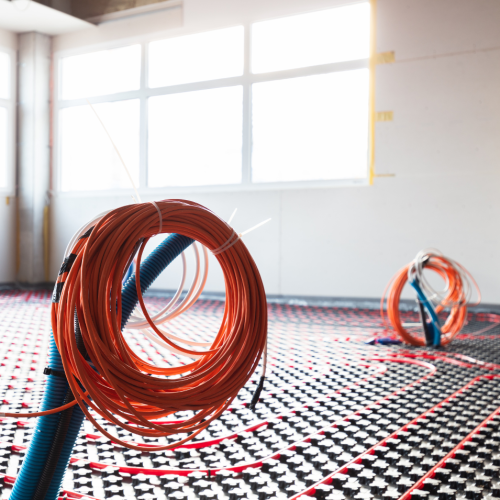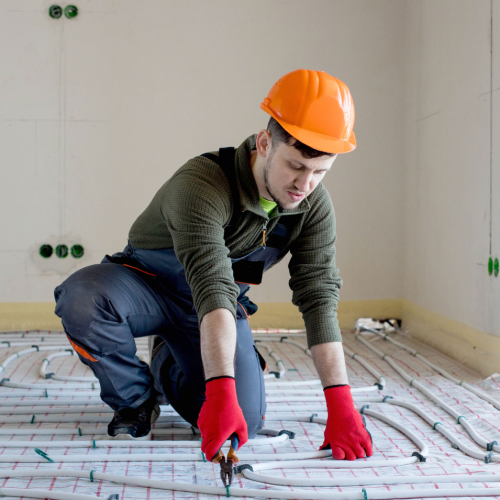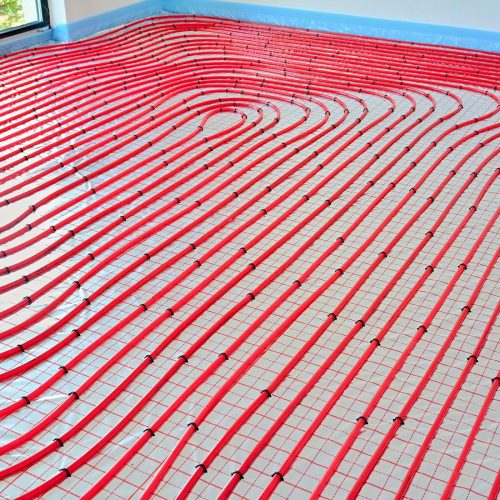16
Apr 2024
Is Underfloor Heating Expensive To Use?
Underfloor heating is known for providing a consistent and comfortable heat distribution throughout a room, and it can be an efficient way to heat your home. However, the expense of using underfloor heating can vary widely depending on several factors:
Installation Costs
Electric Systems: These are generally cheaper to install than water-based systems but can be more expensive to run, especially if electricity prices are high in your area.
Water-Based Systems (Hydronic): These have higher initial installation costs due to the complexity of embedding pipes in floors and connecting them to your boiler system. However, they can be more cost-effective in the long term, particularly if they are integrated into a home with an efficient boiler.

Operating Costs

Efficiency: Underfloor heating systems, especially water-based ones, can be more efficient than traditional radiators because they operate at lower temperatures while still heating a space effectively. This means they can potentially reduce your heating bills, depending on your current heating system and the insulation of your home.
Insulation: The efficiency of underfloor heating is significantly affected by the level of insulation in your home. Well-insulated homes will retain heat better, making underfloor heating a more cost-effective option.
Energy Source: The cost of running an underfloor heating system also depends on the price of the energy source (e.g., gas, electricity, solar) used to heat the water or the electric matting. Gas is typically cheaper than electricity, making hydronic systems generally less expensive to operate than electric ones, assuming the home is well-insulated.
Long-term Savings
While the initial setup cost for underfloor heating (especially hydronic systems) can be high, the operational costs may be lower in the long run, especially if the system is well-designed and your home is well-insulated. This is because underfloor heating can be more energy-efficient, potentially leading to savings on energy bills over time.
In summary, whether underfloor heating is expensive to use depends on various factors, including the type of system installed, the insulation quality of your home, and the energy prices in your area. To assess the cost-effectiveness for your specific situation, consider the initial installation costs, the type of underfloor heating system, your home’s insulation, and the ongoing operating costs.
If you need further help with underfloor heating, please get in touch with JCW Underfloor Heating today. Our team can help you with everything from planning and installation to maintenance and repairs. We offer a wide range of underfloor heating systems to suit all budgets and requirements. Contact us today to discuss your needs and get a free quote.

Comparison to Other Heating Systems
When compared to traditional radiators, underfloor heating provides heat more uniformly, which can improve comfort and possibly allow you to set a lower thermostat temperature, potentially saving money.
The type of flooring can also affect the efficiency; for example, tile and stone have good thermal conductivity, making them excellent choices for underfloor heating.
However, tile and stone can be uncomfortably cold underfoot in the absence of heating, which might not be ideal for all climates or seasons. This could necessitate the continuous operation of underfloor heating to maintain comfort, potentially leading to increased energy consumption and higher utility bills.
